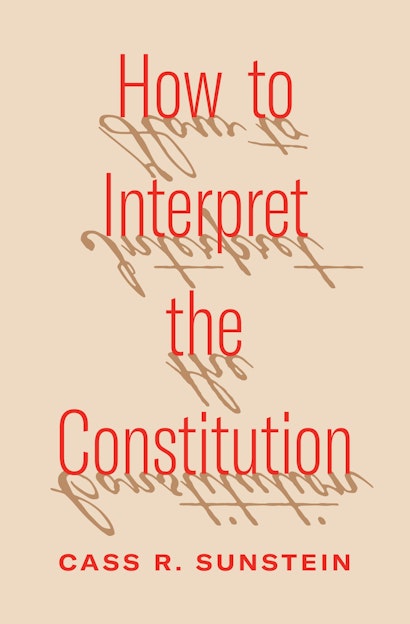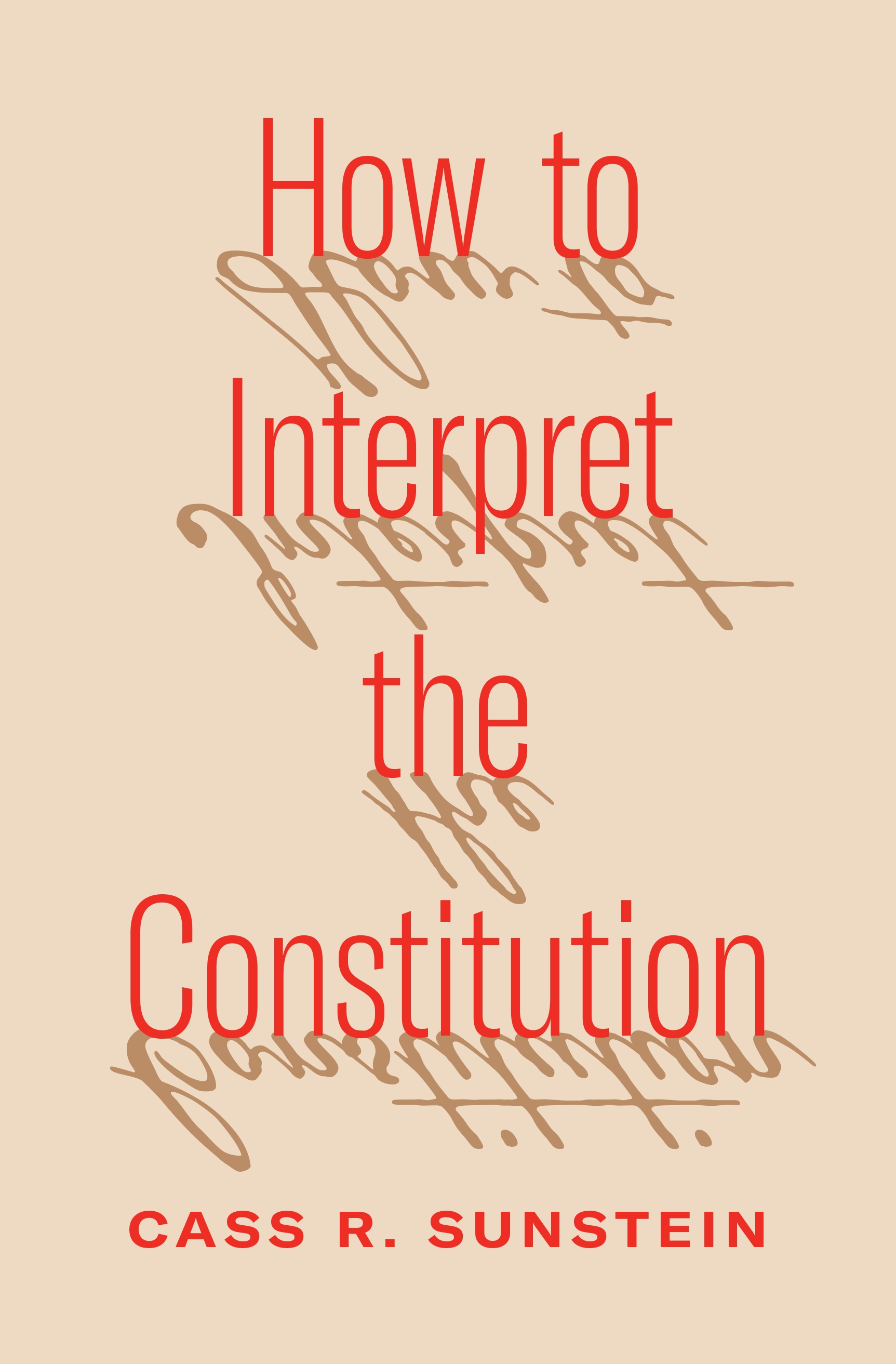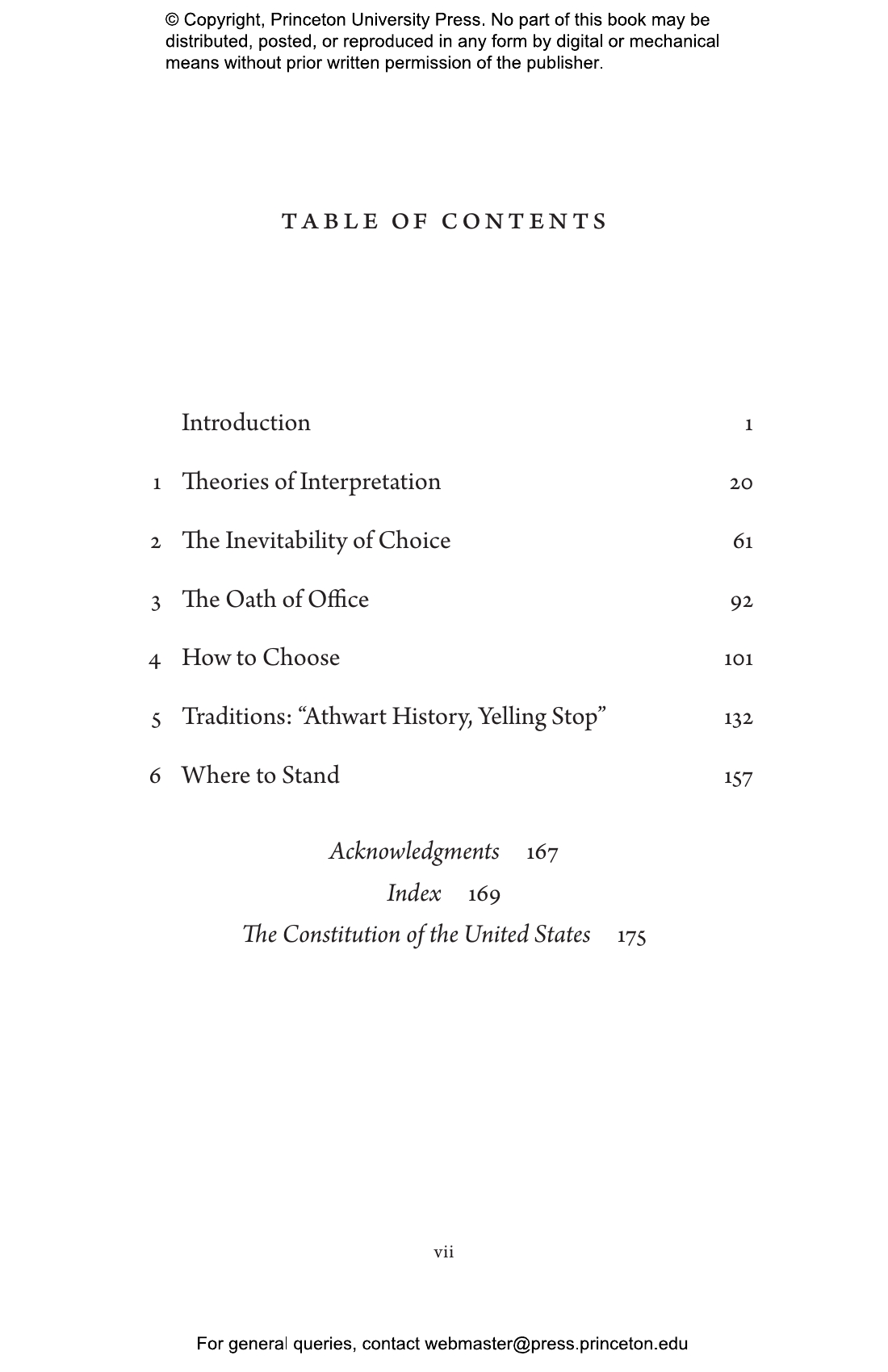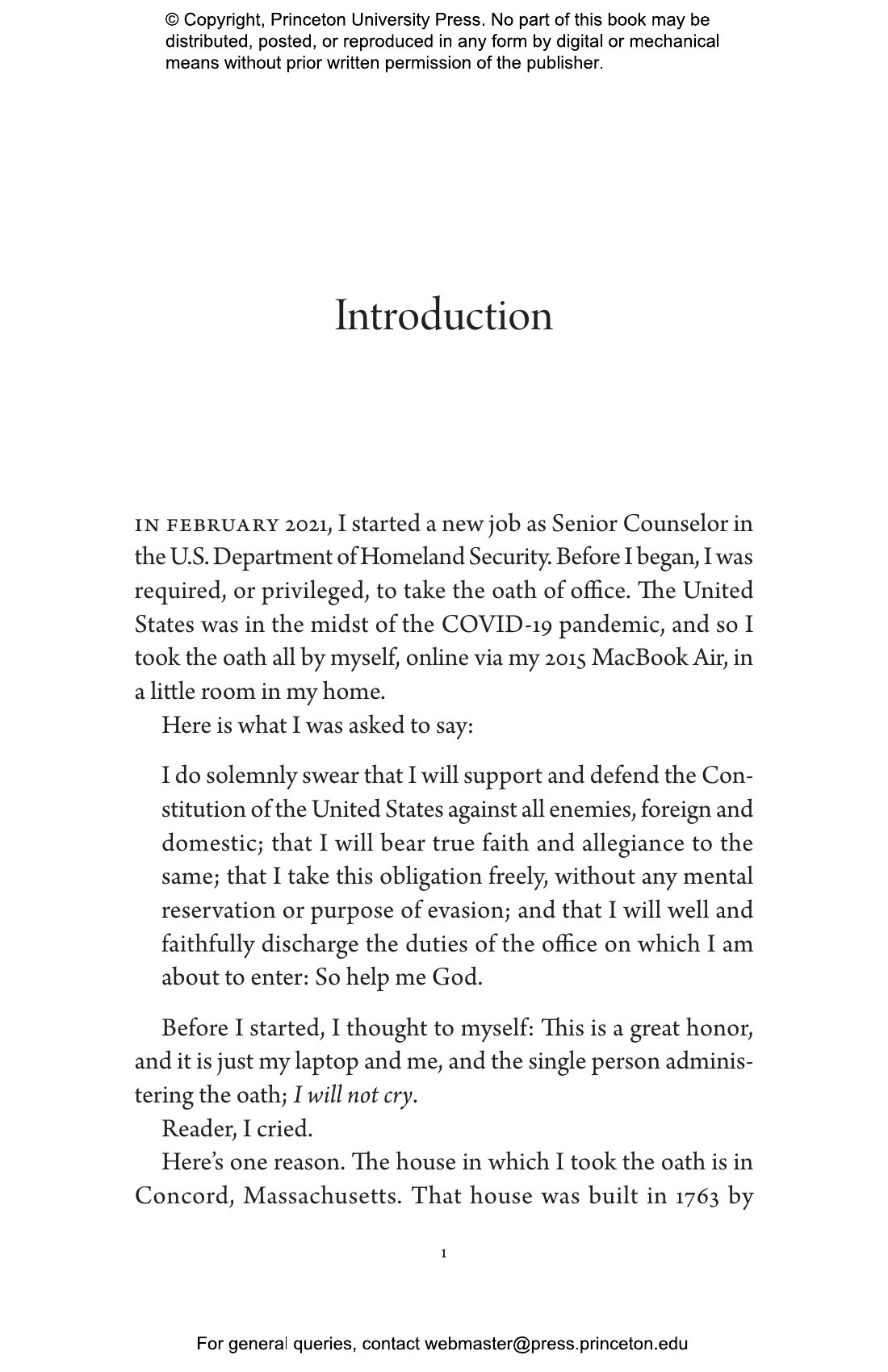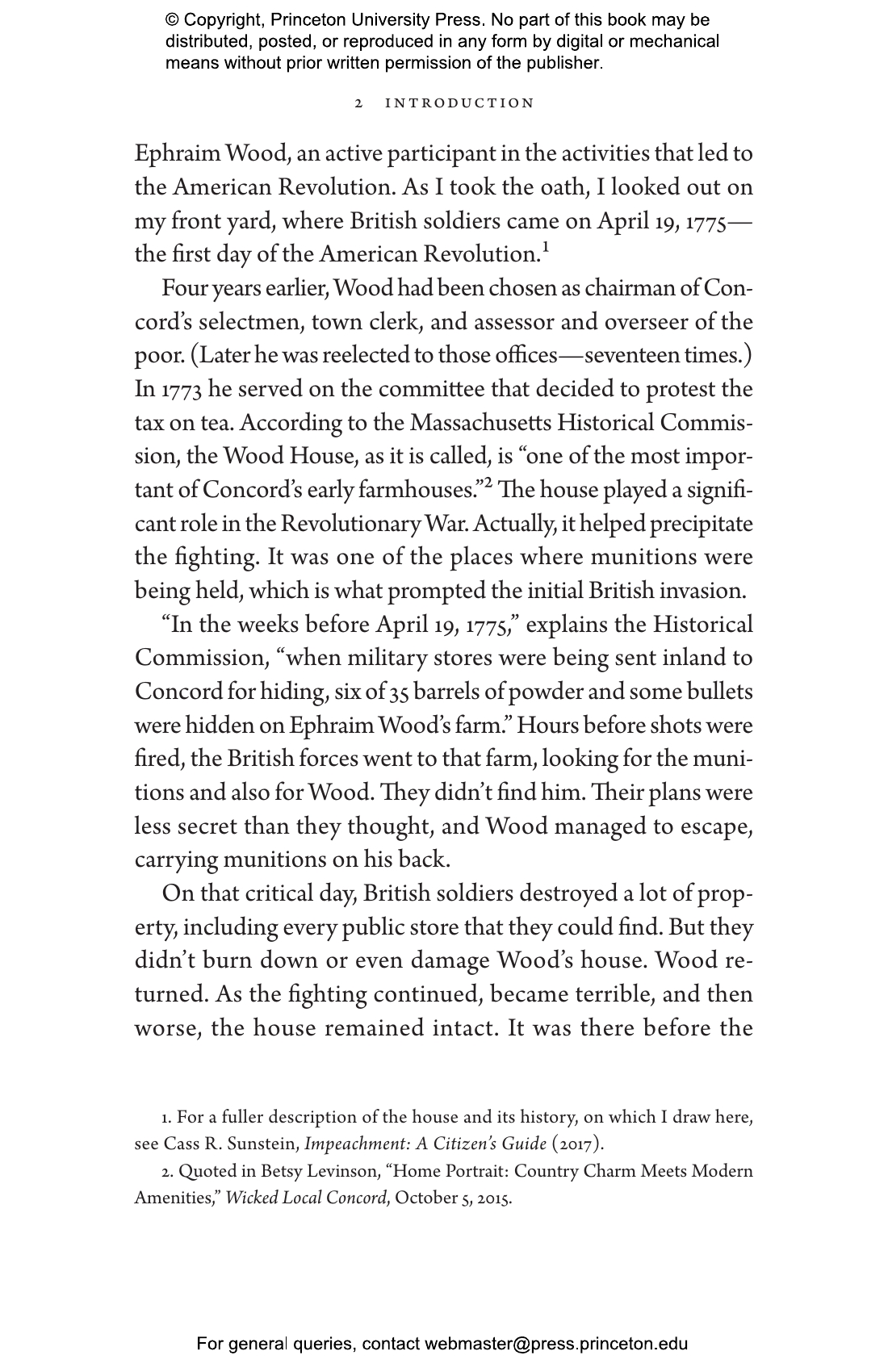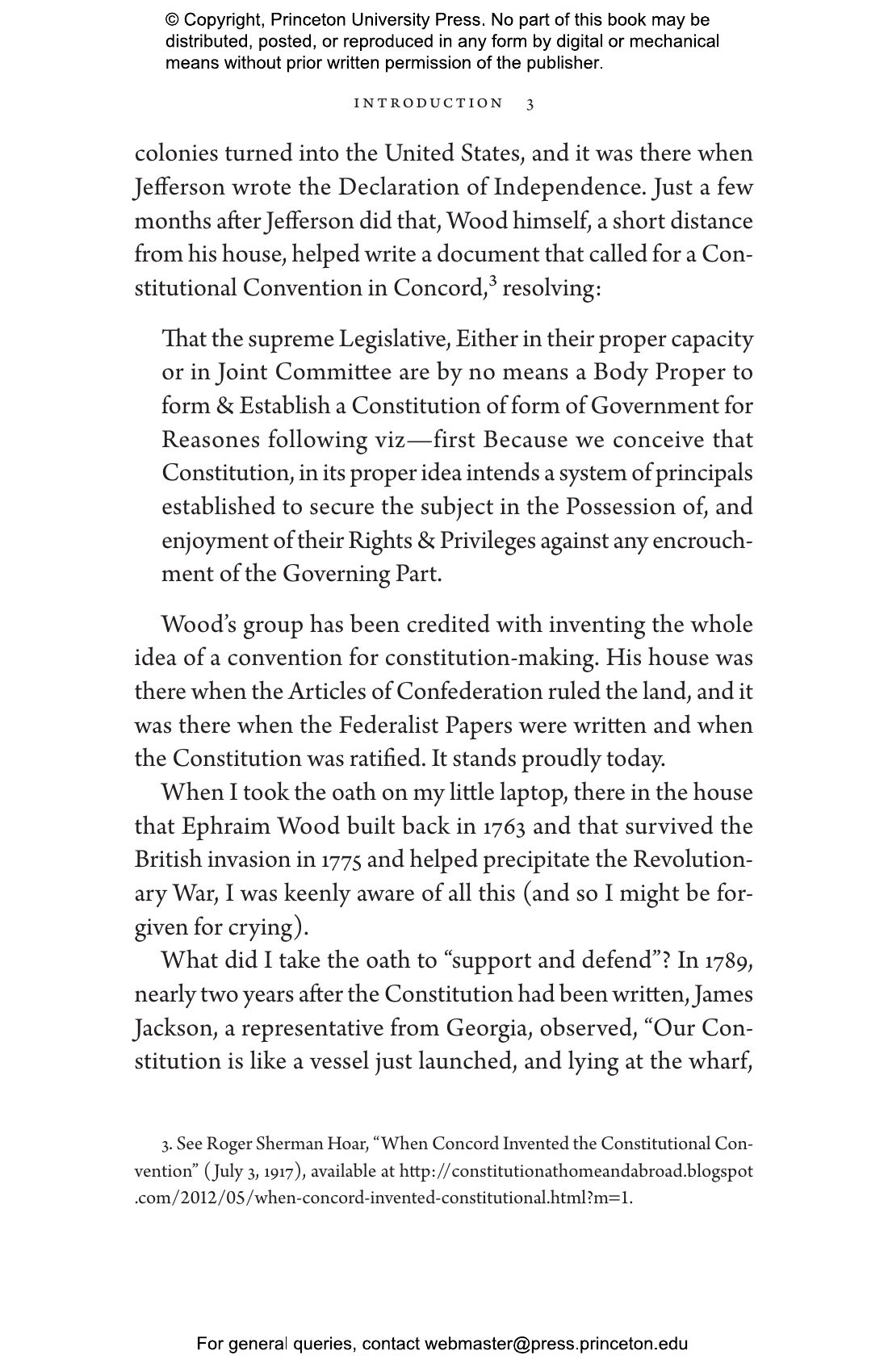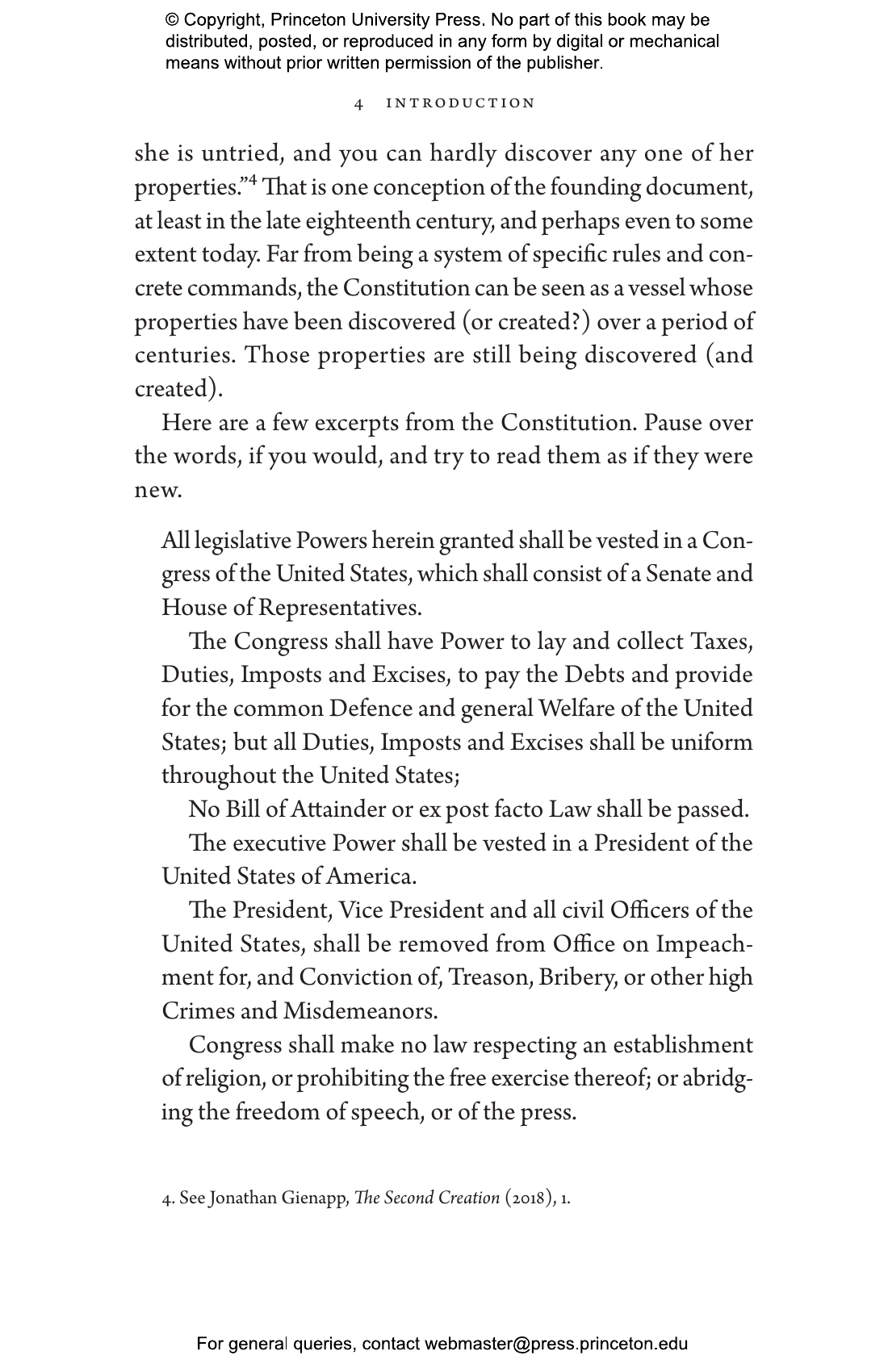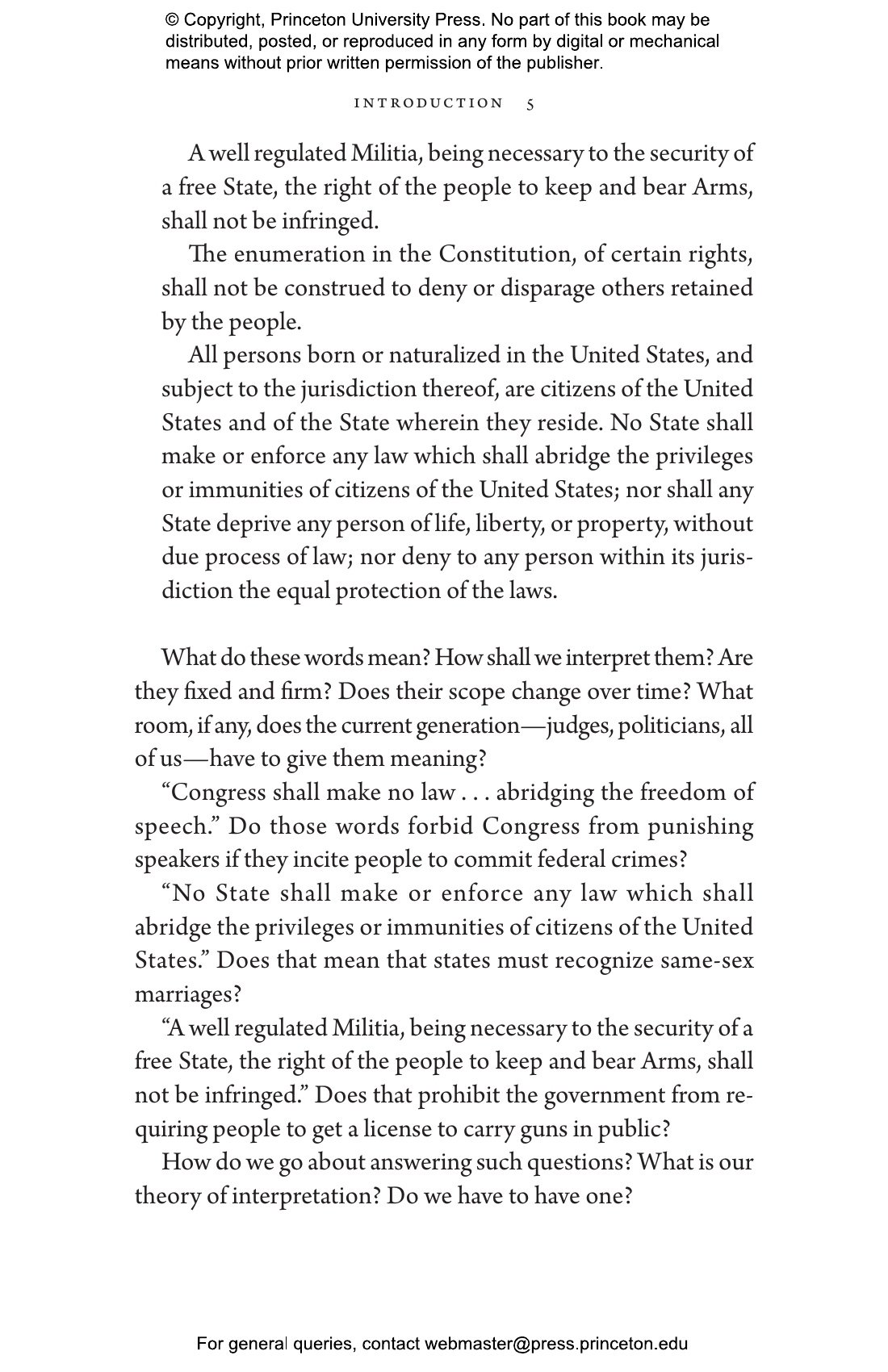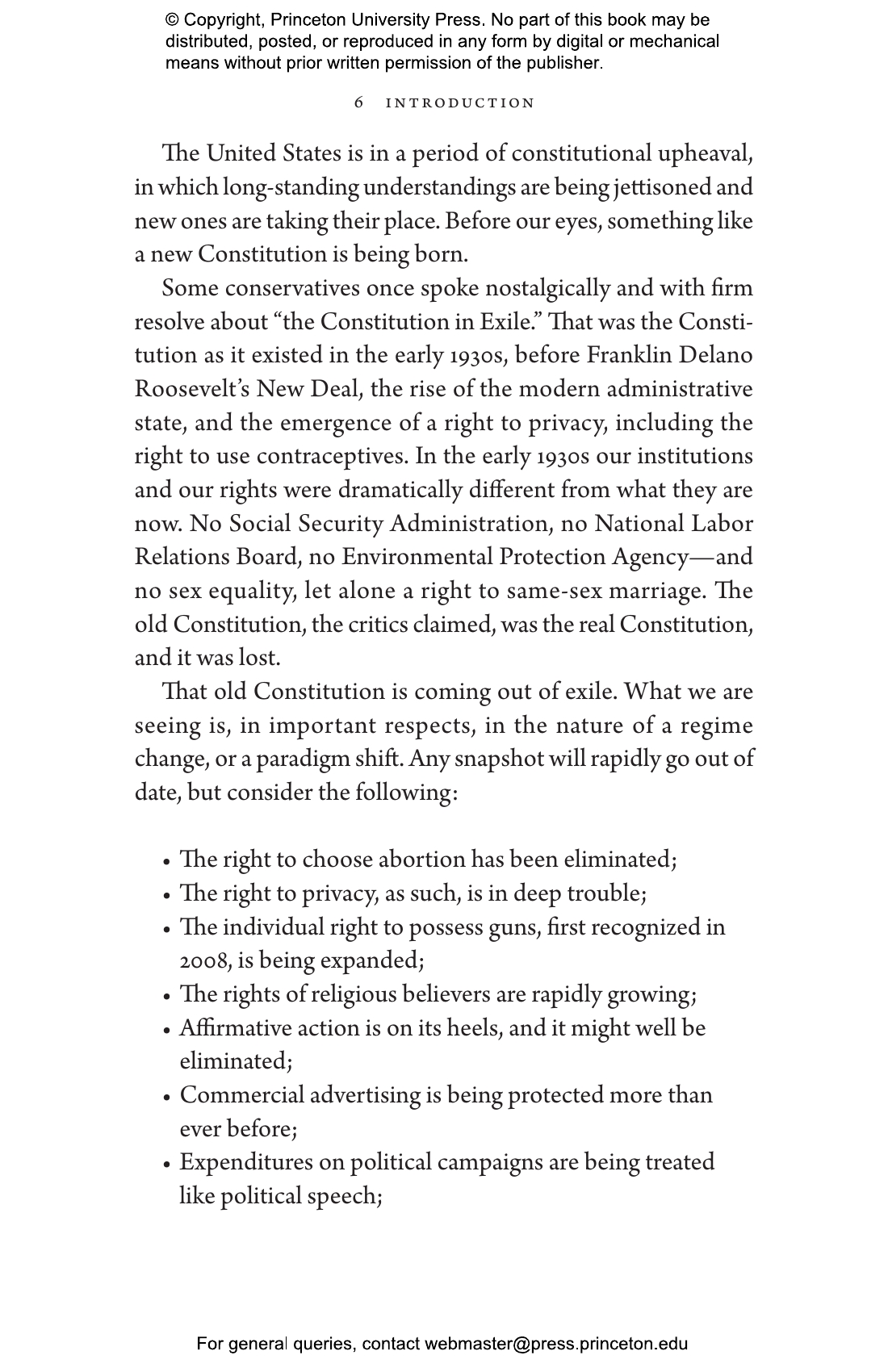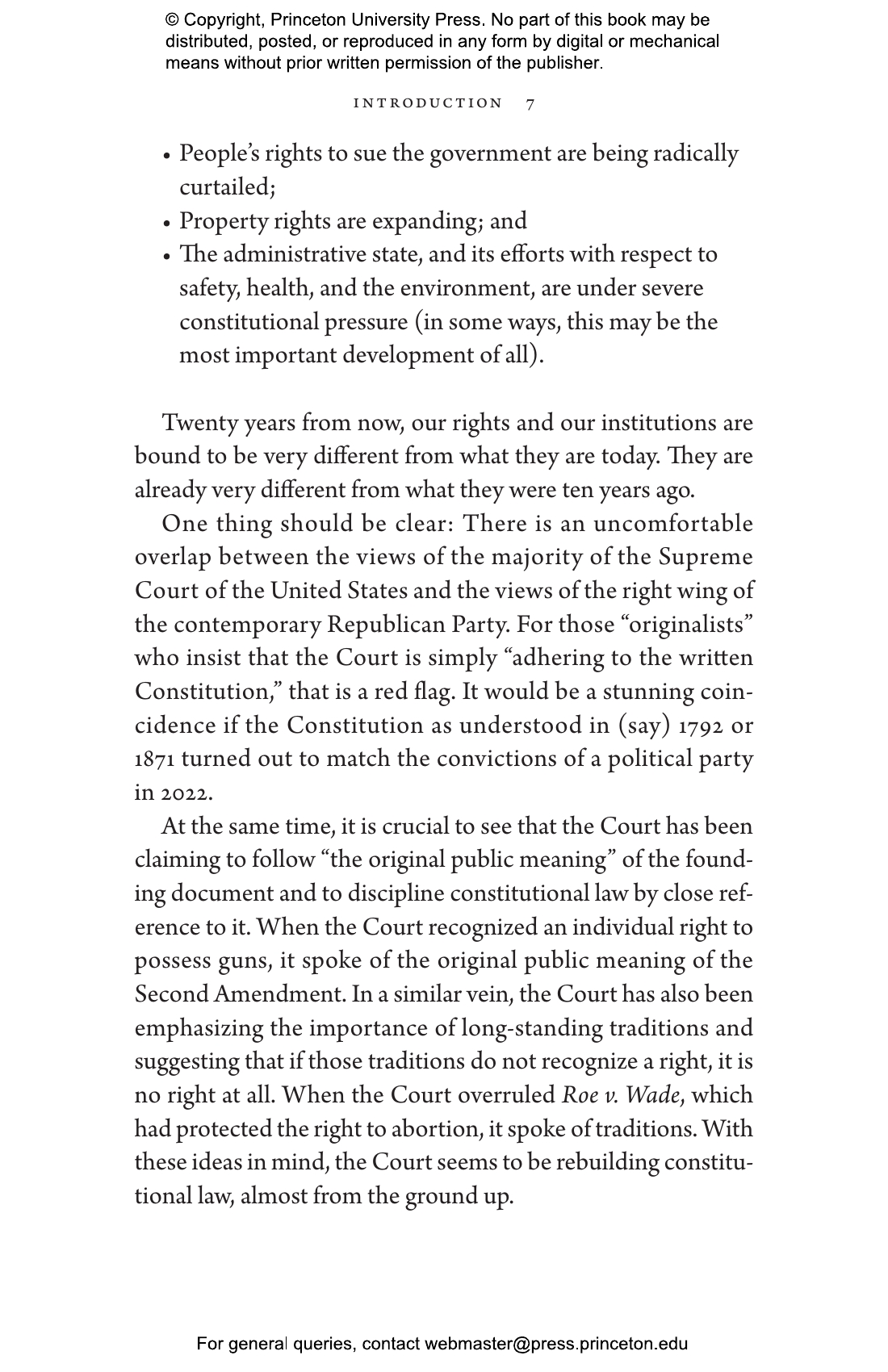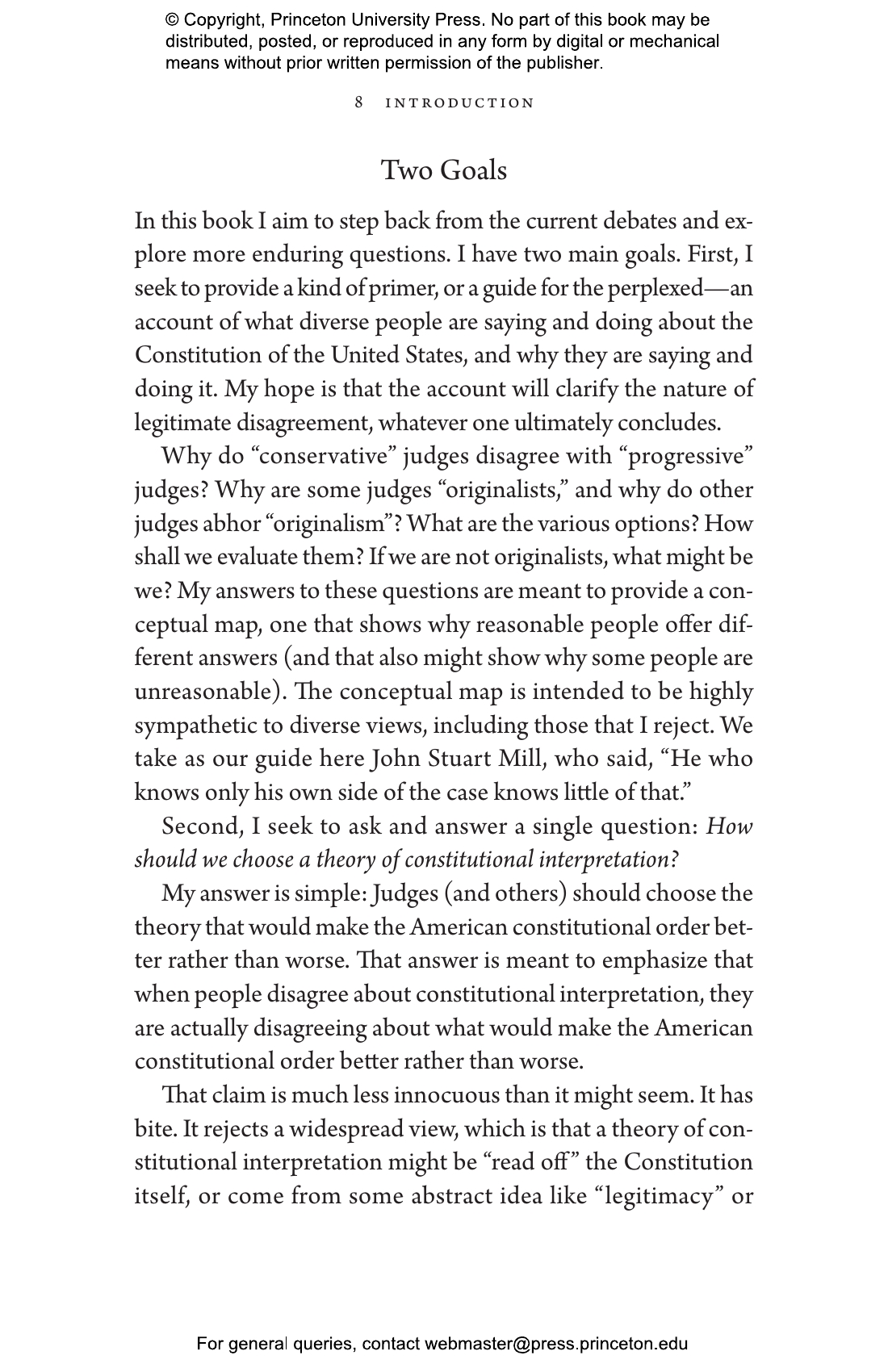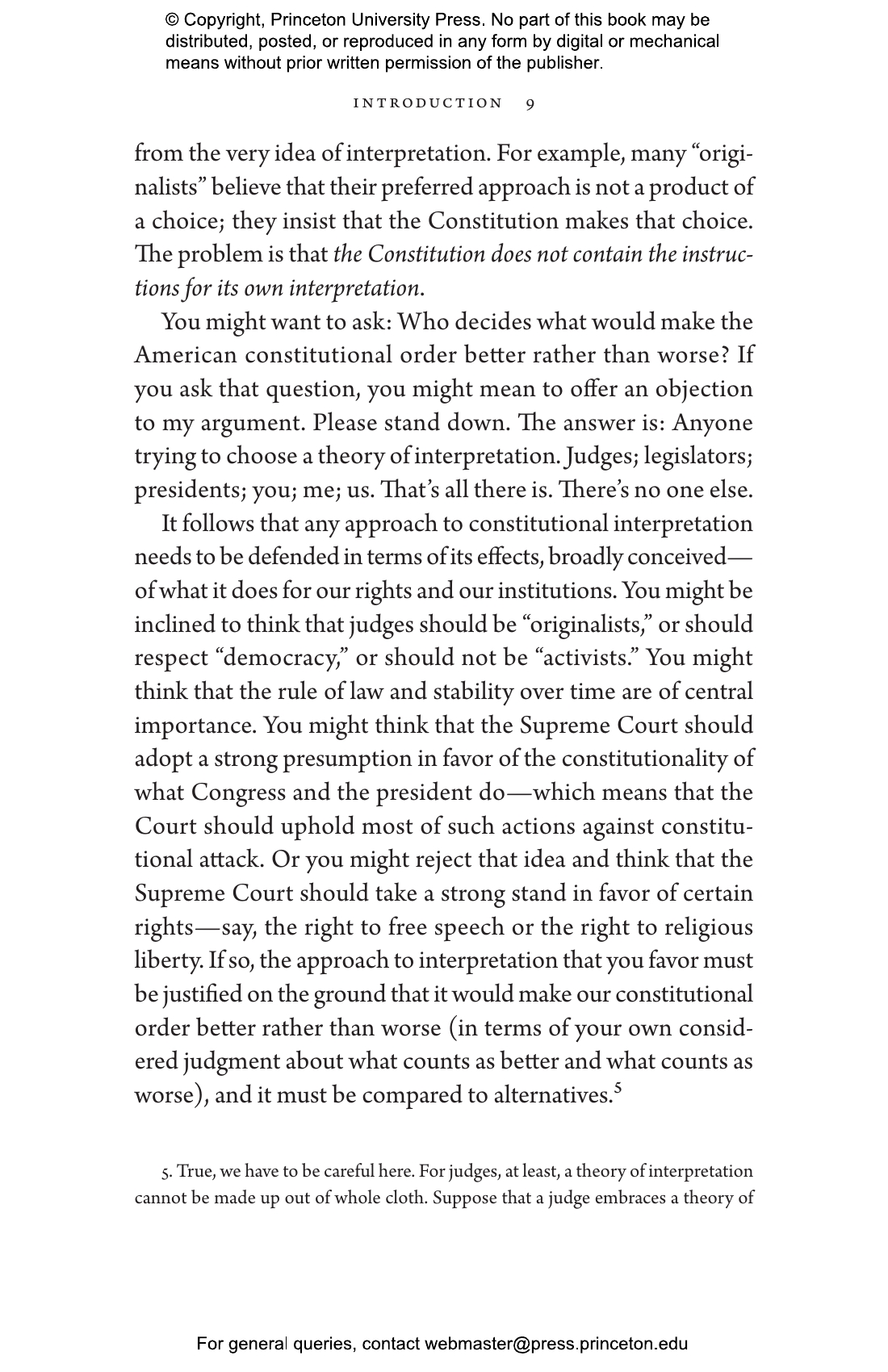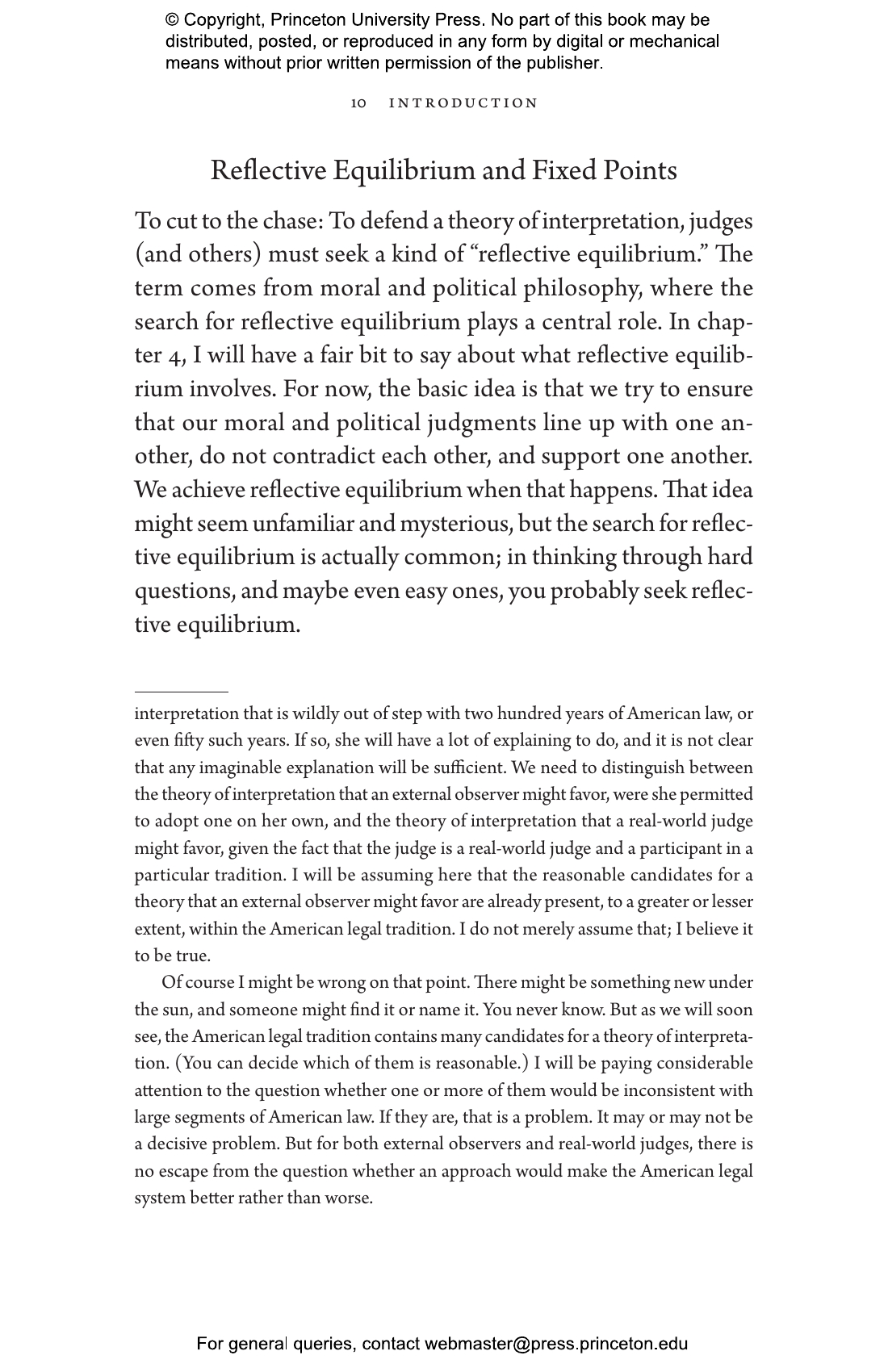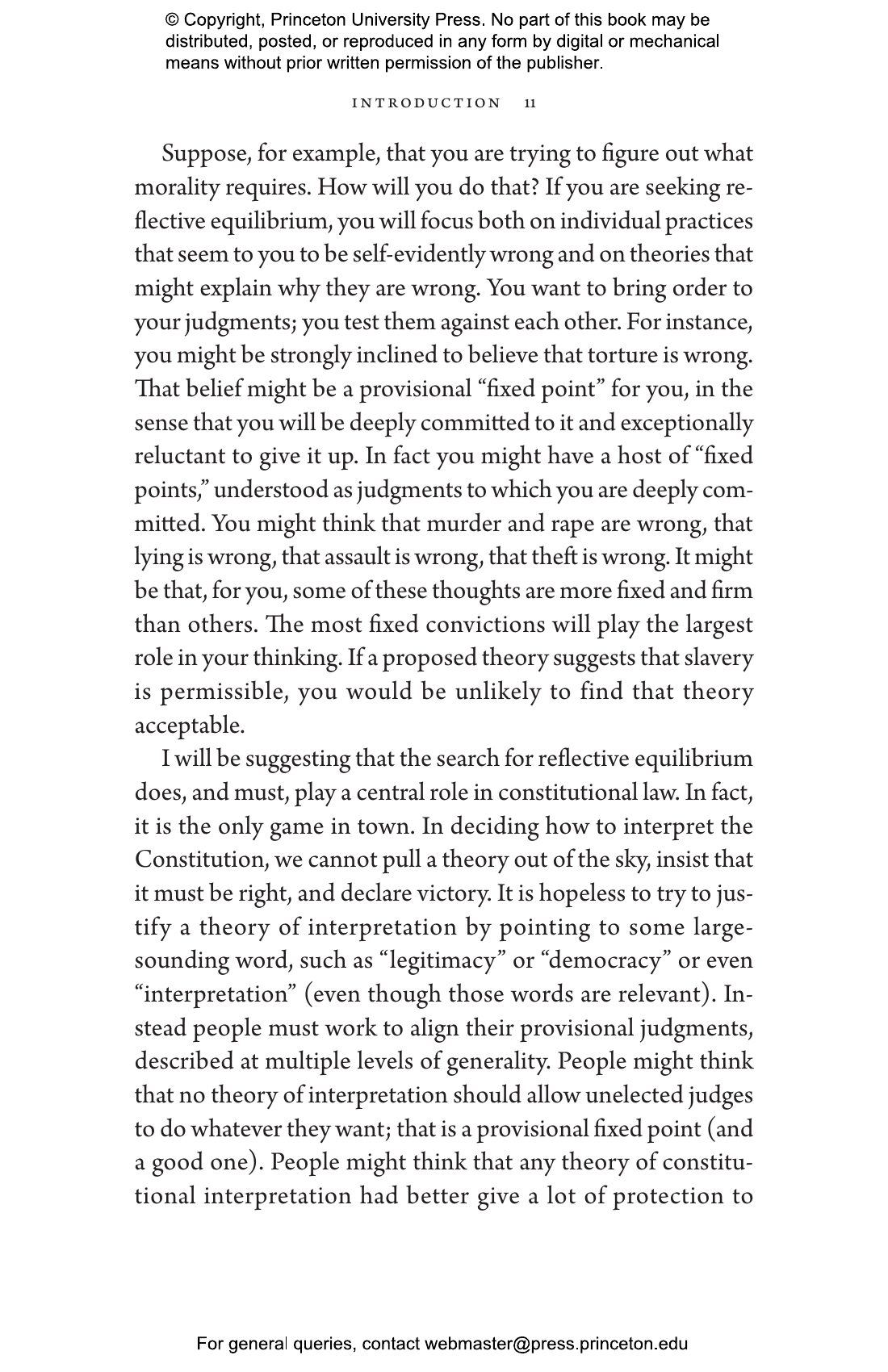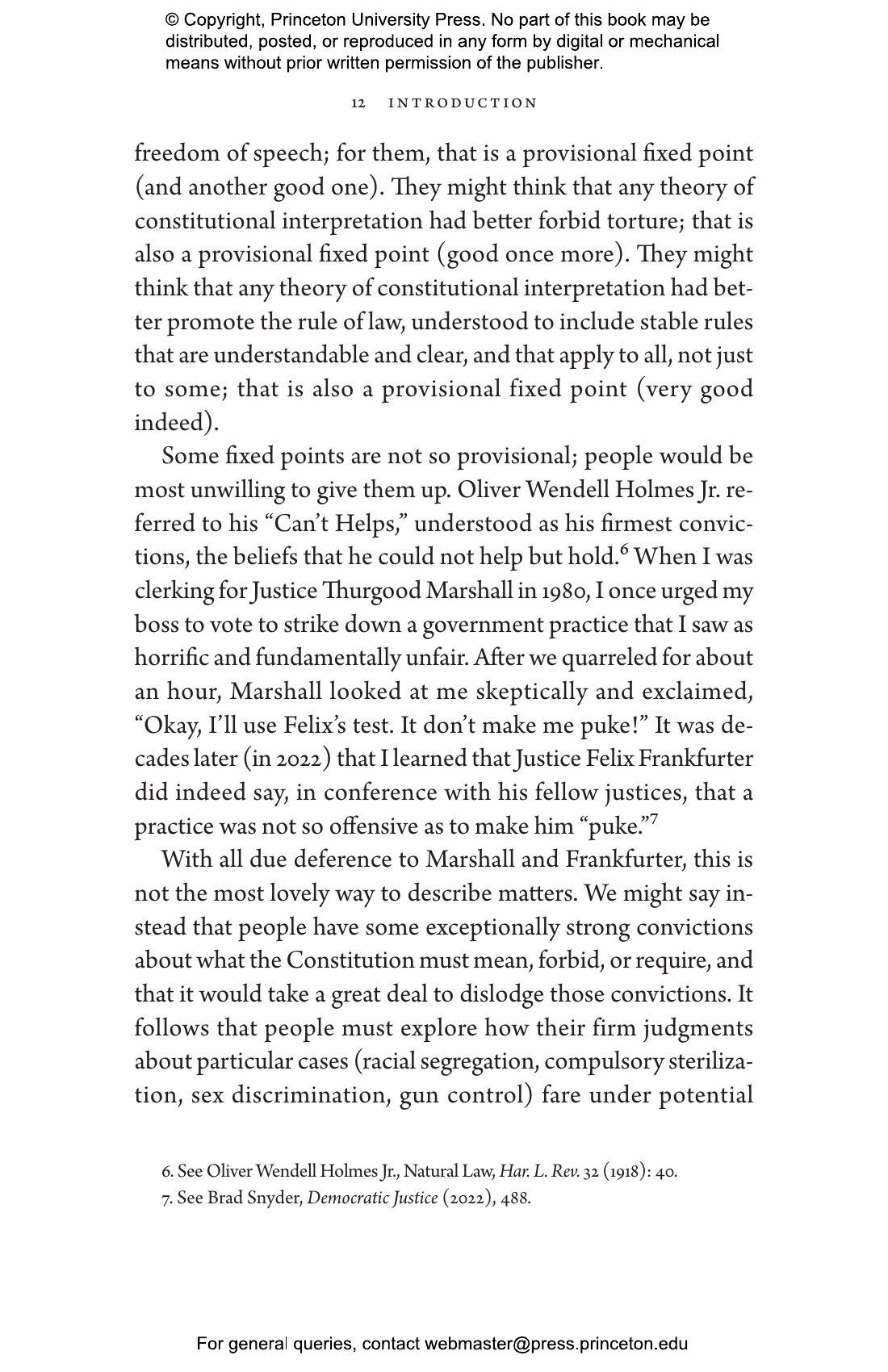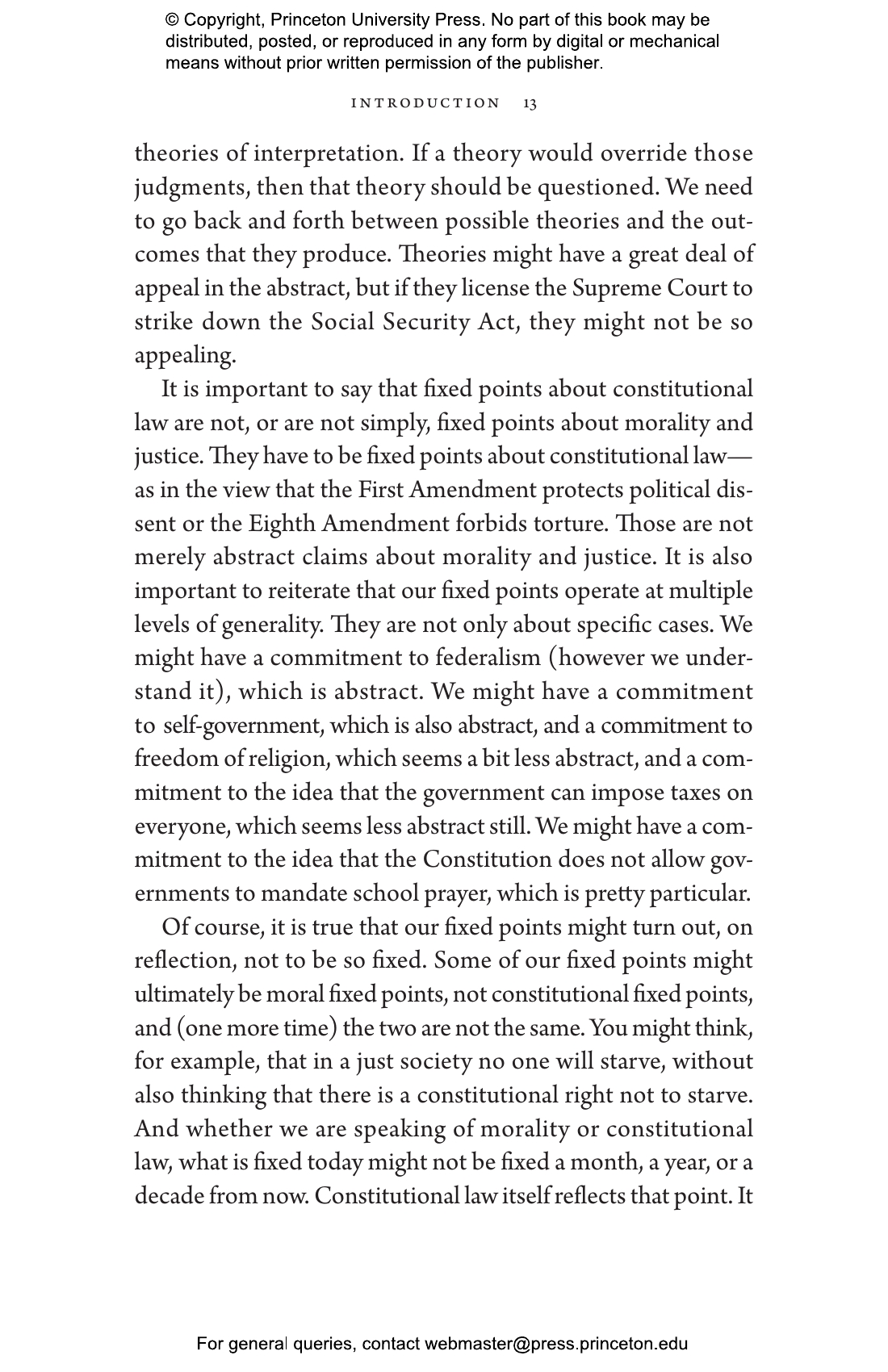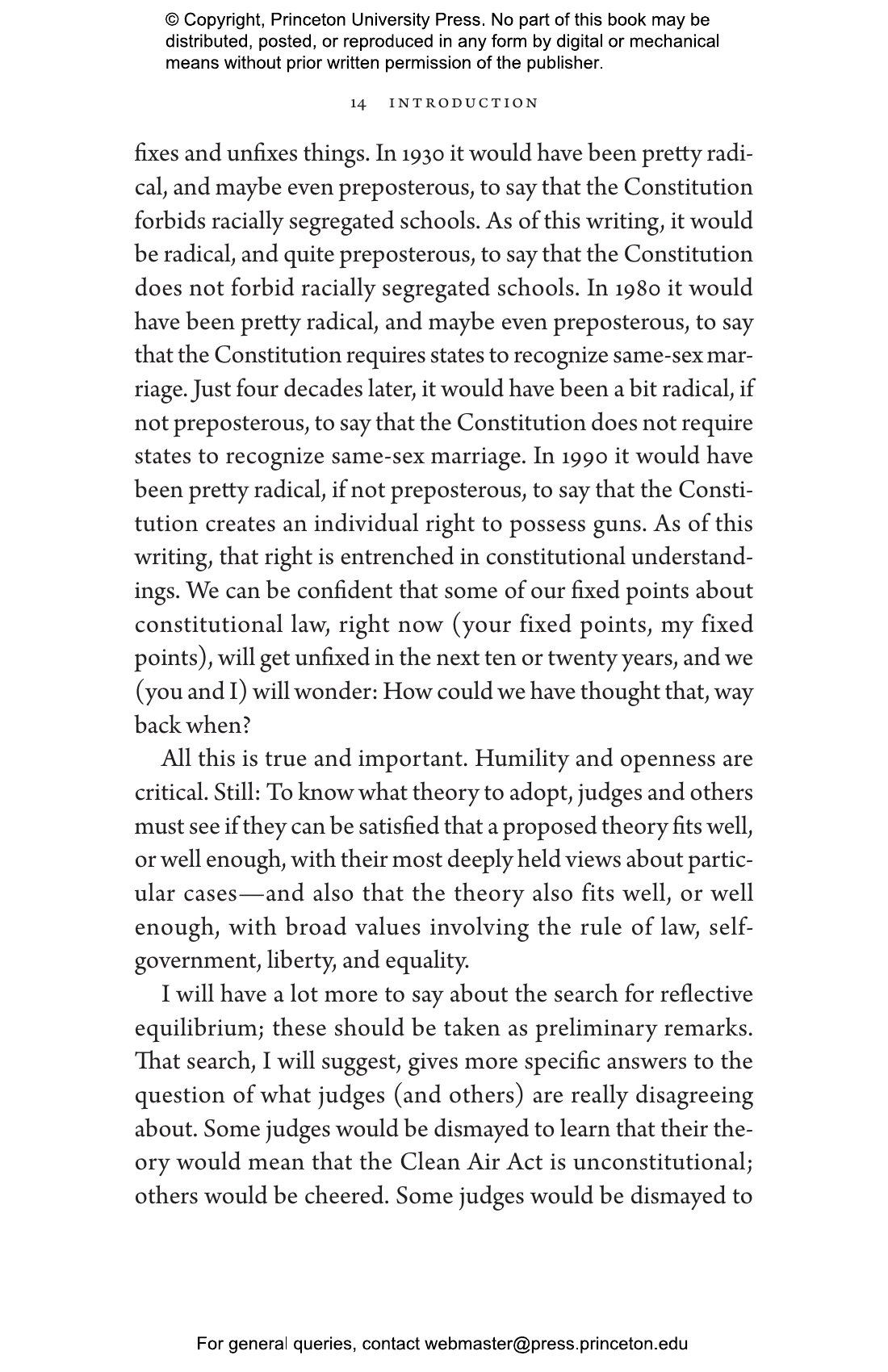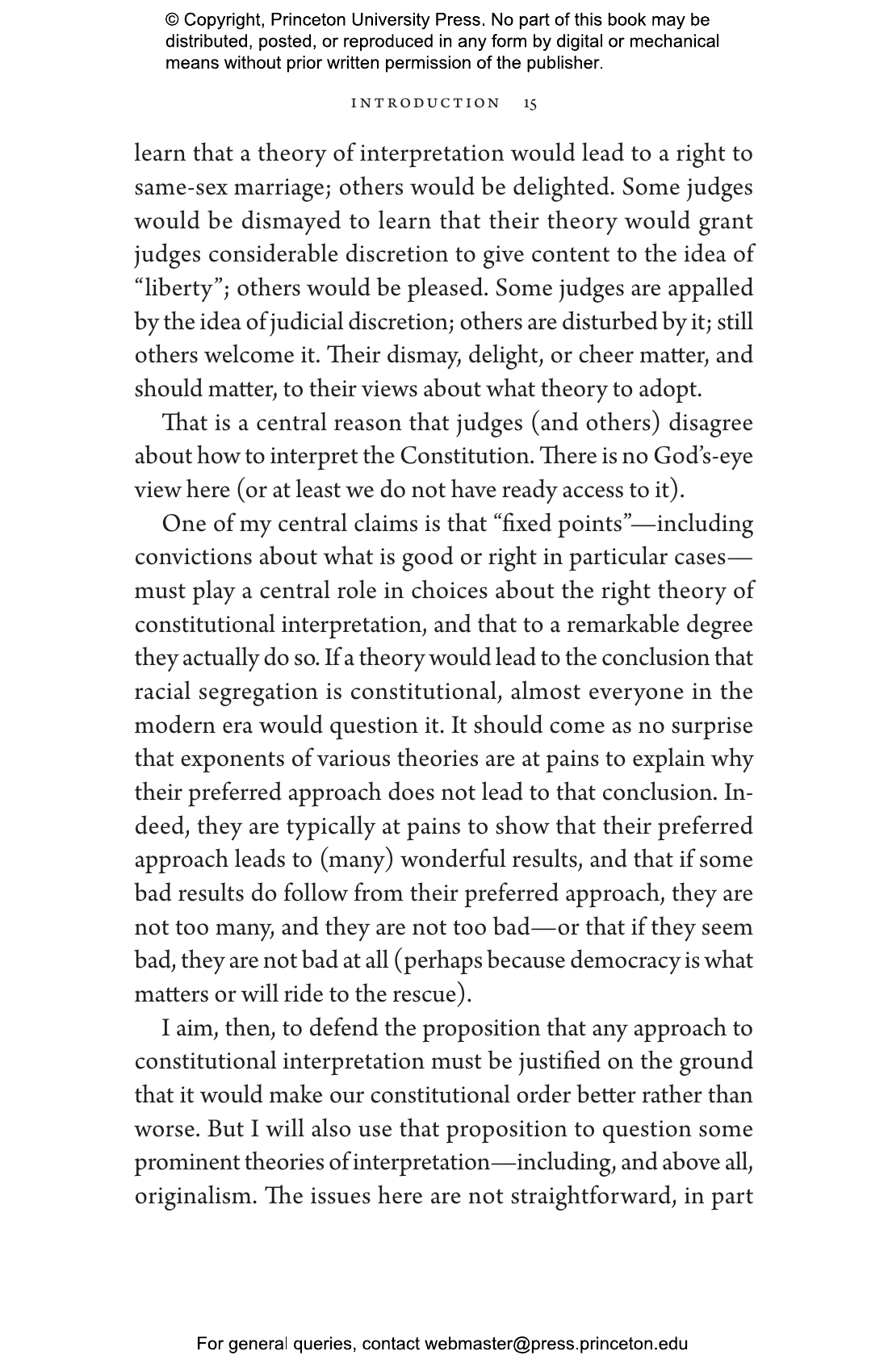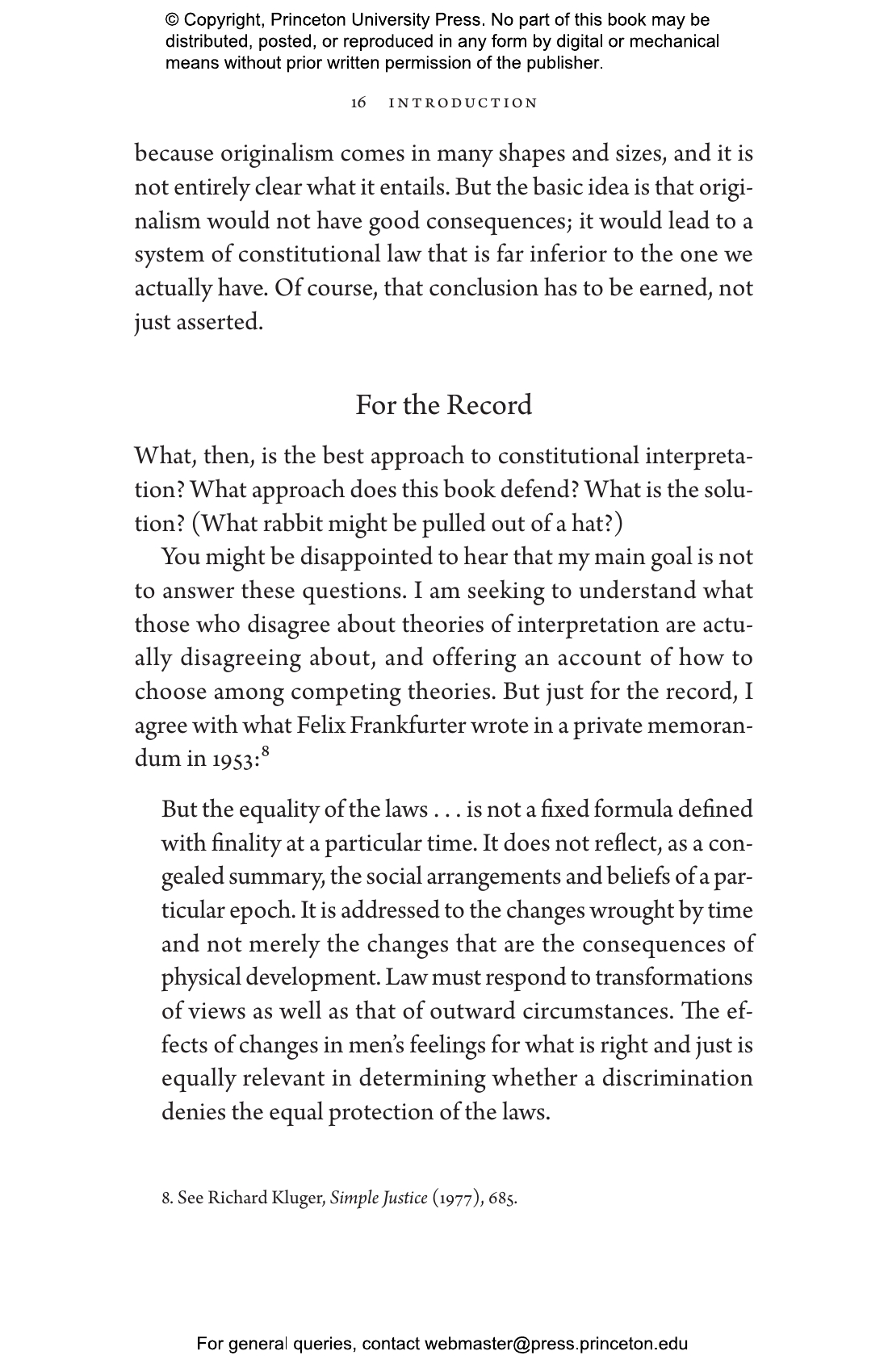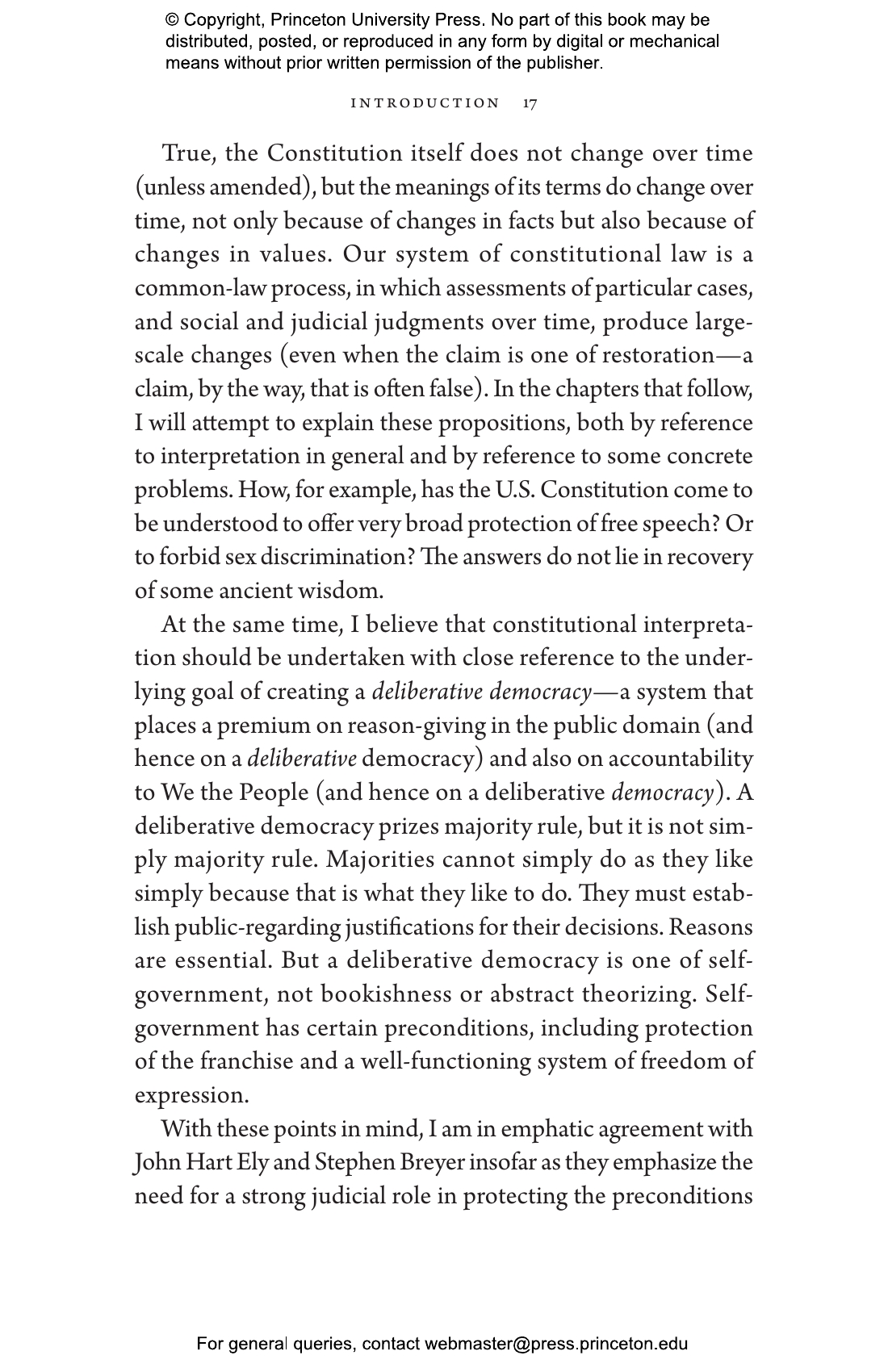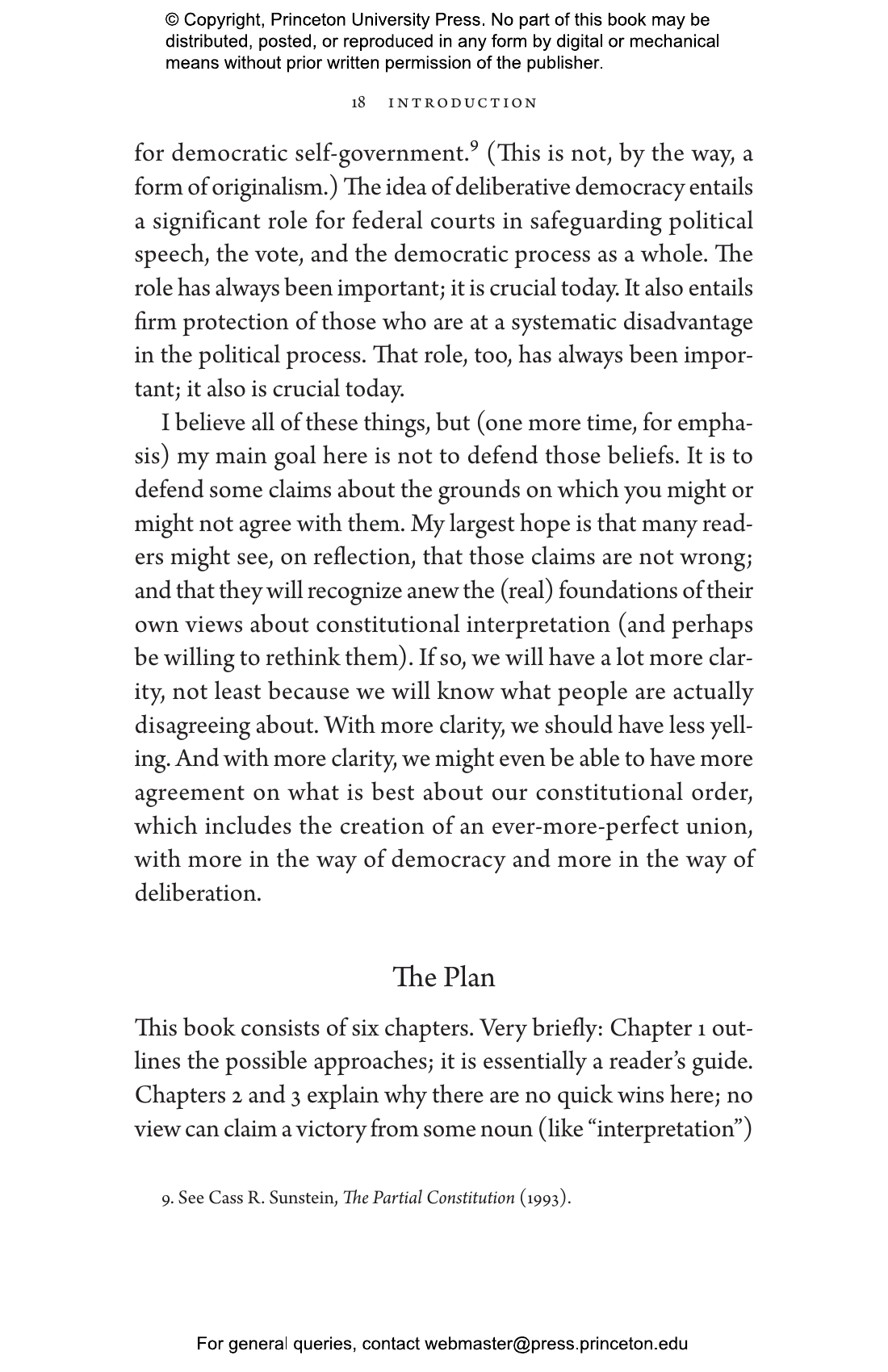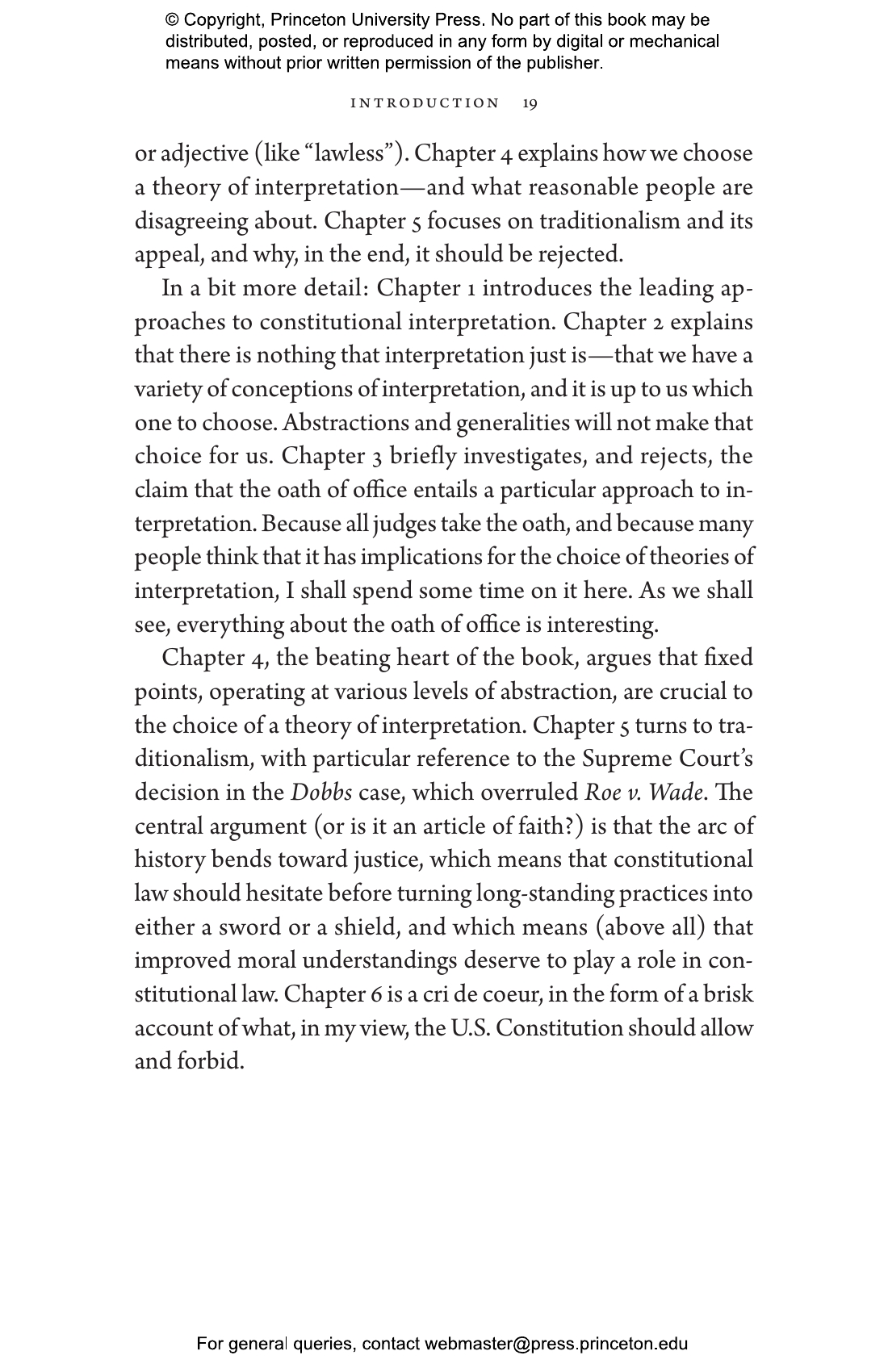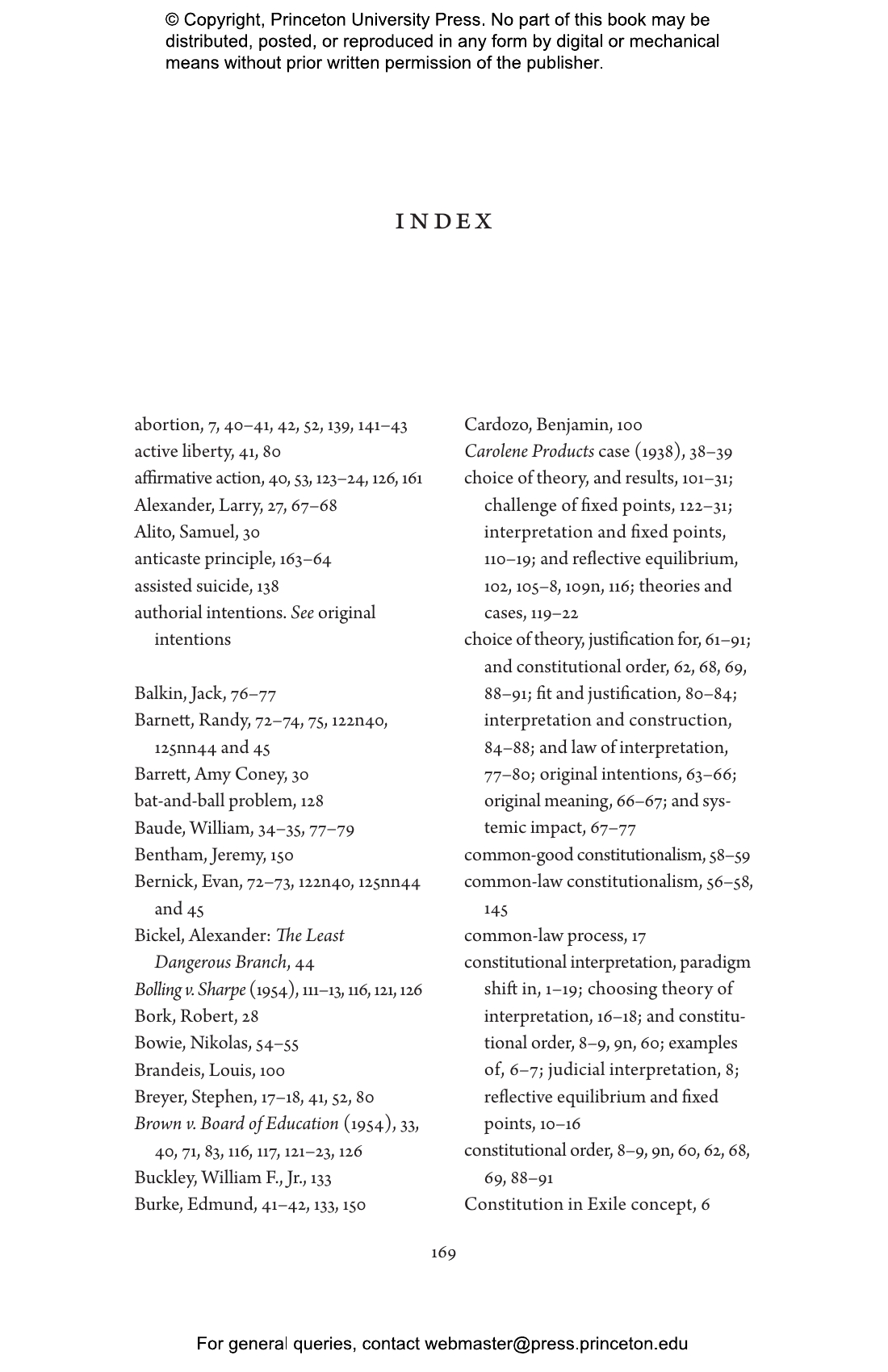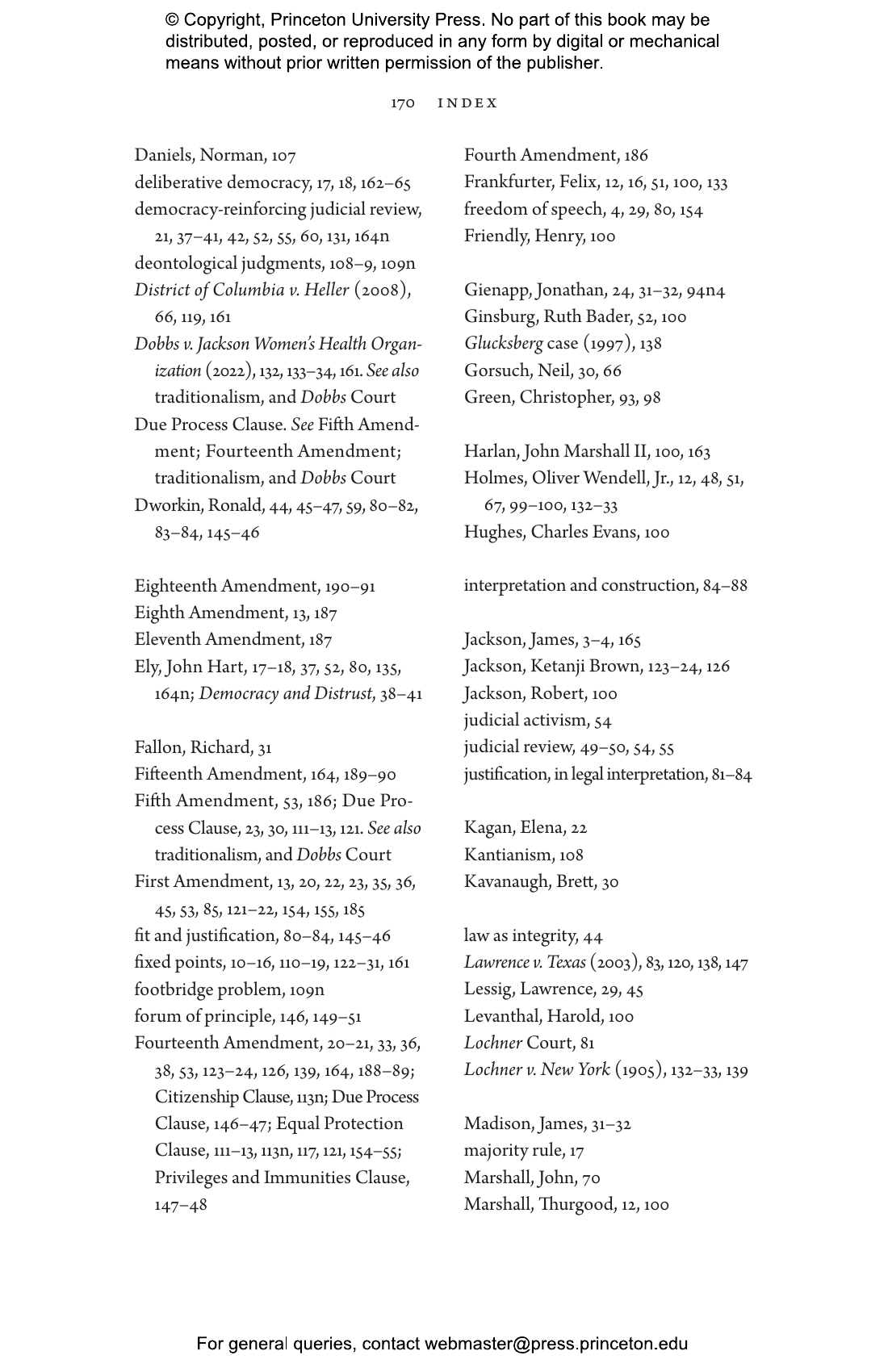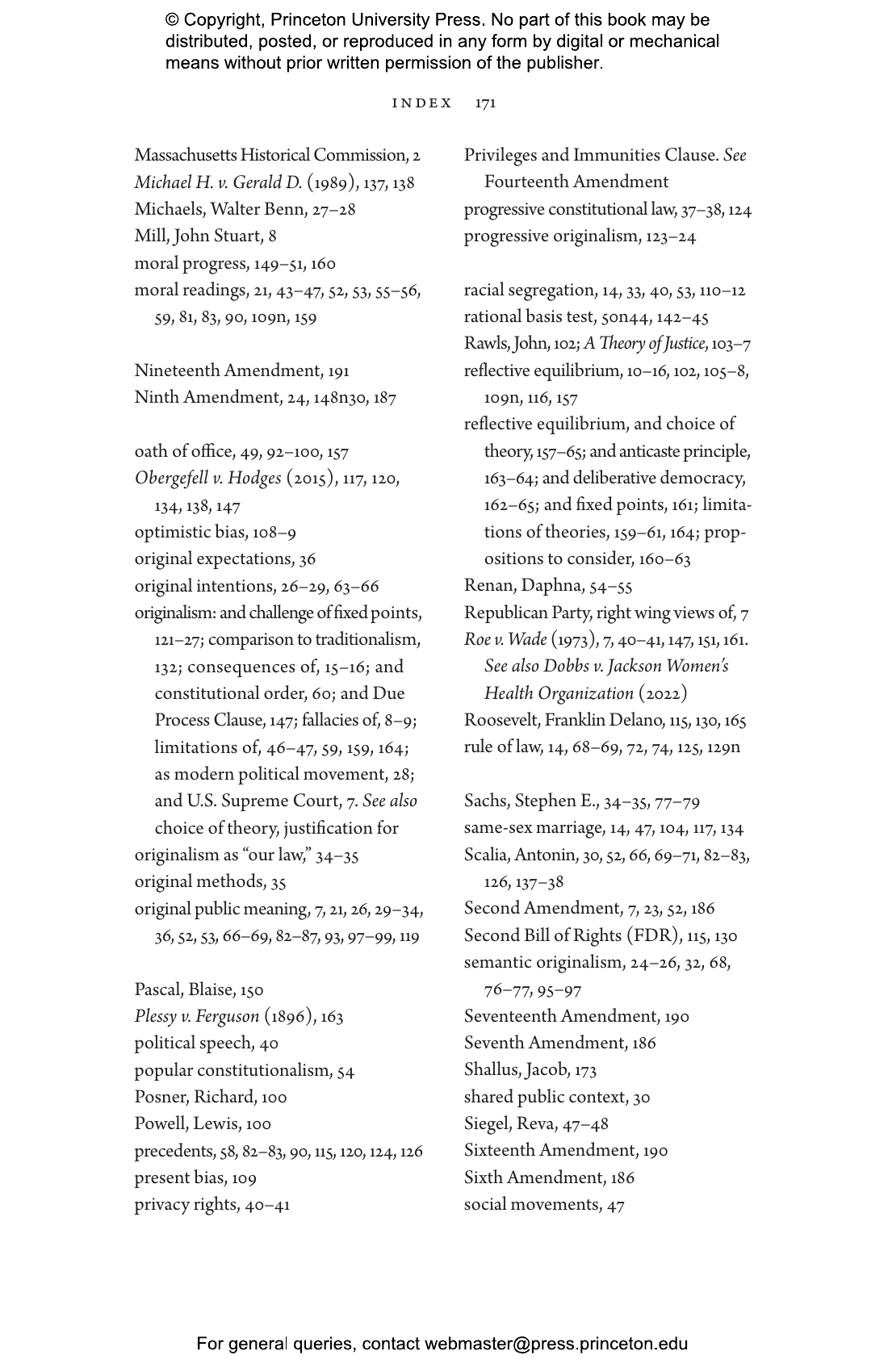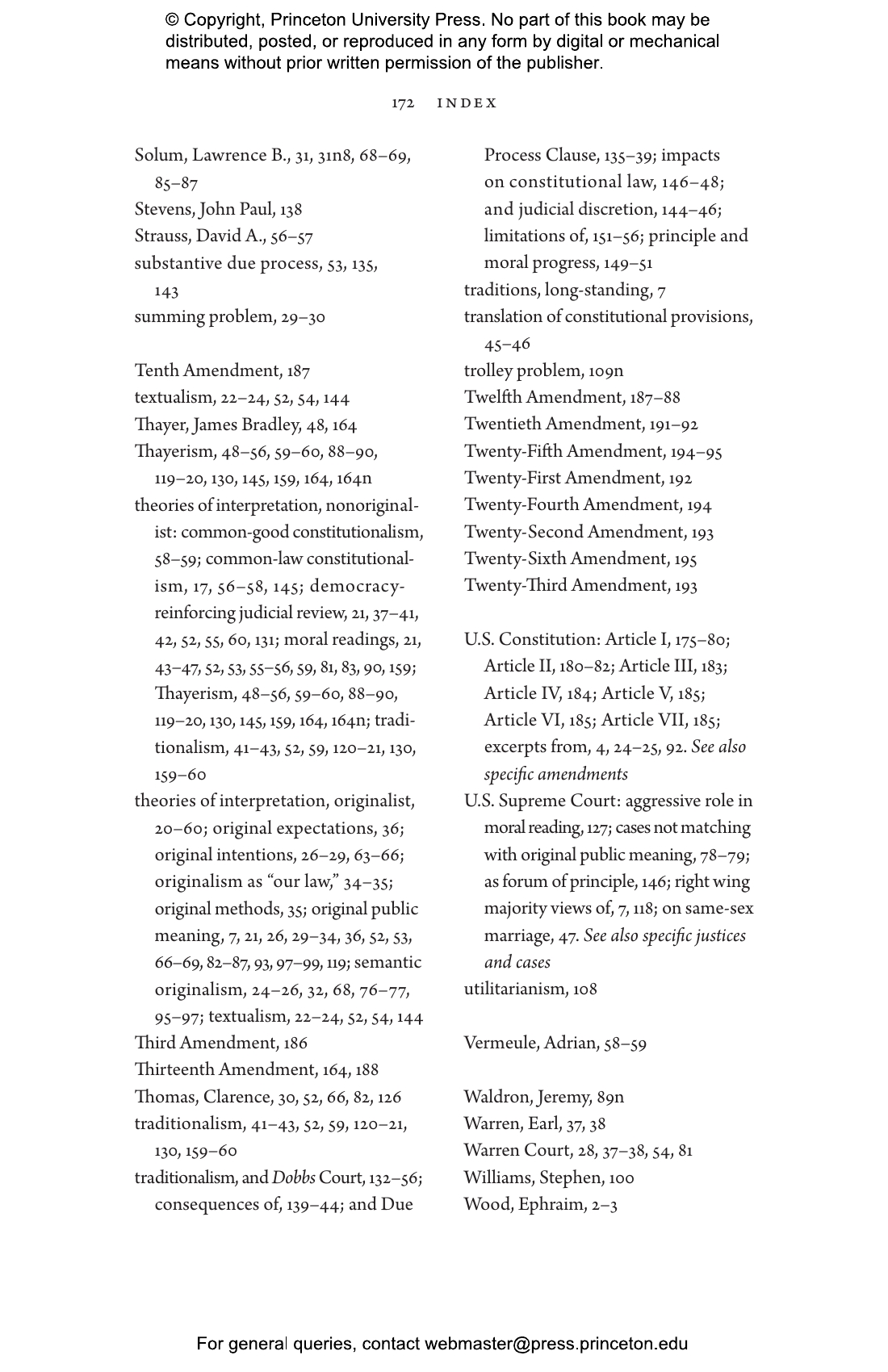The U.S. Supreme Court has eliminated the right to abortion and is revisiting other fundamental questions today—about voting rights, affirmative action, gun laws, and much more. Once-arcane theories of constitutional interpretation are profoundly affecting the lives of all Americans. In this brief and urgent book, Harvard Law School professor Cass Sunstein provides a lively introduction to competing approaches to interpreting the Constitution—and argues that the only way to choose one is to ask whether it would change American life for the better or worse. If a method of interpretation would eliminate the right of privacy, allow racial segregation, or obliterate free speech, it would be unacceptable for that reason.
But some Supreme Court justices are committed to “originalism,” arguing that the meaning of the Constitution is settled by how it was publicly understood when it was ratified. Originalists insist that their approach is dictated by the Constitution. That, Sunstein argues, is a big mistake. The Constitution doesn’t contain instructions for its own interpretation. Any approach to constitutional interpretation needs to be defended in terms of its broad effects—what it does to our rights and our institutions. It must respect those rights and institutions—and safeguard the conditions for democracy itself.
Passionate and compelling, How to Interpret the Constitution is essential reading for anyone who is concerned about how the Supreme Court is changing the rights and lives of Americans today.
Awards and Recognition
- Longlisted for the Edwards Book Award, Rodel Institute
Cass R. Sunstein is the Robert Walmsley University Professor at Harvard University and the founder and director of the Program on Behavioral Economics and Public Policy at Harvard Law School. He is the recipient of Norway’s Holberg Prize, which is sometimes described as the equivalent of the Nobel Prize for law and the humanities. His many books include the New York Times bestseller Nudge (with Richard H. Thaler), On Freedom (Princeton), and #Republic (Princeton).
"An extraordinary work. . . . Sunstein carries the novice reader across this difficult terrain without simplifying the subject and manages to let his own passionate views shine through without shortchanging others. The book is an education."—Jessica T. Mathews, Foreign Affairs
"At a time of impassioned divisiveness over the Constitution, Harvard Law profess Cass Sunstein's How to Interpret the Constitution is a genuinely courteous book. [He] conveys a hopeful sense that open-minded people who give the reasons for their constitutional thinking will make manifest . . . a better constitutional order."—Richard Blaustein, Washington Lawyer
"Despite the author’s fair-mindedness, it’s clear that his main targets are the originalist and traditionalist arguments that have recently captured the radical right and are overturning decades of settled constitutional law. Is Sunstein’s interpretive scheme strong enough to halt the further advance of originalist and traditionalist thinking on the Supreme Court? Probably not. But it’s a brave, muscular, and compelling roadblock now standing in the way of originalist ideologues. This book should be in the hands of every law student, constitutional lawyer, judge, and Supreme Court justice. One of the most significant works about constitutional interpretation in recent years."—Kirkus Reviews (Starred review)
“How to Interpret the Constitution is simply amazing—deeply personal and accessible yet of the highest sophistication. Cass Sunstein takes us on a tour of contemporary constitutional theory that speaks plainly to every citizen who cares about the Constitution and that should be required reading for judges, lawyers, and students of the law. If you want to understand the great debate between originalism and living constitutionalism, this is the book for you.”—Lawrence B. Solum, University of Virginia School of Law
“What’s at stake in choosing among rival approaches to interpreting the Constitution? Cass Sunstein shows us, in terms that speak to outsiders, newcomers, and experts, that interpreters must make value-based choices—and why choosing originalism will make us worse off. A compelling read at a time when many lack confidence in the Supreme Court and the Constitution, and debate burns hot.”—Reva Siegel, Yale Law School
“Even to one who answers the question—how to interpret the Constitution—differently than Cass Sunstein, this introduction to the topic is refreshingly commonsensical, accessible, and fair-minded.”—Michael W. McConnell, Stanford Law School
“Cass Sunstein, one of the nation’s leading constitutional scholars, provides a citizen’s guide to current controversies over how to interpret the Constitution. Everyone interested in constitutional law and today’s Supreme Court will benefit from grappling with Sunstein’s arguments.”—Mark Tushnet, Harvard Law School, author of Taking Back the Constitution
